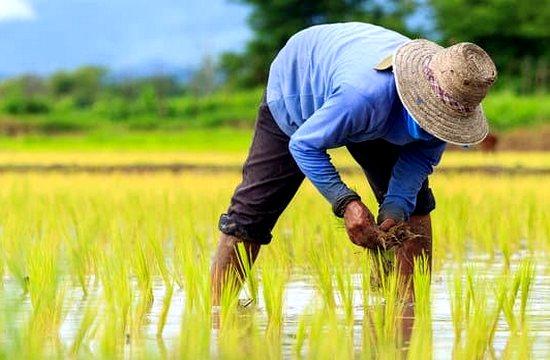Farmers across Argentina have voiced strong opposition to the government’s recent bailout package, widely associated with former U.S. President Donald Trump’s economic strategies. The controversial aid measures, intended to stabilize the struggling agricultural sector amid spiraling inflation and export restrictions, have instead sparked outrage among producers who argue the plan favors large agribusinesses and fails to address the core challenges facing small and medium-scale farmers. This backlash sheds light on the complex economic and political dynamics at play as Argentina grapples with its ongoing financial crisis.
Farmers Criticize Bailout for Favoring Large Agribusinesses Over Smallholders
Small-scale farmers across Argentina have voiced strong opposition to the government’s recent financial package, arguing that it disproportionately benefits large agribusinesses while leaving traditional smallholders on the sidelines. According to numerous reports, the bailout’s structure favors corporations with established export channels and extensive land holdings, granting them easier access to subsidies and credit lines. Meanwhile, small farmers struggle with bureaucratic hurdles and lack the collateral to qualify for assistance, exacerbating existing inequalities within the agricultural sector.
Key points raised by the farming community include:
- Disparity in fund allocation, with over 70% directed to top-tier grain and livestock exporters.
- Insufficient support for sustainable practices commonly employed by smallholders.
- Limited transparency in the criteria for bailout eligibility.
| Type of Farmer | Average Land Size (ha) | Approximate Bailout Benefit |
|---|---|---|
| Smallholder | 15 | $2,000 |
| Mid-sized Farmer | 150 | $25,000 |
| Large Agribusiness | 2,000+ | $1,250,000 |
Economic Impacts of the Bailout on Argentina’s Agricultural Sector
The bailout’s influx of capital into Argentina’s agricultural sector was intended to stabilize an industry teetering under economic strain. However, many farmers view the intervention as a double-edged sword. While the funds provided temporary liquidity, long-term consequences have prompted worry and frustration among growers. Increased government involvement has led to market distortions, with some producers experiencing artificial inflation in input costs, including seeds, fertilizers, and machinery. This has undermined the natural supply-and-demand balance, making it harder for smaller farmers to compete.
- Rising costs: Input prices surged by nearly 15%, outpacing bailout benefits.
- Export restrictions: Tied aid measures have limited farmers’ ability to access international markets.
- Debt dependency: Some farmers fear becoming reliant on government support, risking fiscal instability.
| Impact Area | Pre-Bailout | Post-Bailout |
|---|---|---|
| Input Costs | Stable | +15% |
| Export Access | Open | Restricted |
| Farm Revenue | Moderate Growth | Uneven |
Moreover, the bailout has inadvertently fueled political tensions within the sector. Many agricultural communities perceive the infusion as a form of government overreach rather than support, triggering protests and calls for policy changes. The economic uncertainty has led some producers to withhold investments or delay planting decisions, which could hamper Argentina’s status as a global food supplier. As the bailout program continues, its ability to foster sustainable growth remains under scrutiny, with farmers demanding a more transparent and market-driven approach.
Calls for Transparent Policies and Inclusive Support for All Farmers
Farmers across the nation have been vocal in demanding policies that are not only transparent but also equitable. They criticize the bailout for lacking clarity on allocation criteria, leaving many smallholders and family farms sidelined. The majority stress that financial relief should be accompanied by clear public guidelines, ensuring that every farming entity, regardless of size or political influence, receives fair consideration. Such transparency would also enable accountability, mitigating fears of favoritism or misuse of funds.
Advocates for inclusive rural support emphasize that effective aid must recognize the diverse challenges faced by different agricultural sectors. The current bailout structure has been described as disproportionately favoring large agribusinesses, missing vital programs tailored for small-scale producers and indigenous farmers. Farmers are calling for:
- Equitable financial distribution based on farm size and need
- Accessible technical assistance and resources for sustainable practices
- Community-driven decision-making processes to influence policy design
| Policy Aspect | Current Issue | Farmer Demand |
|---|---|---|
| Financial Distribution | Opaque & skewed toward large farms | Clear criteria & proportional support |
| Technical Support | Limited outreach to small farmers | Expanded, locally tailored assistance |
| Decision-Making | Top-down, non-inclusive | Participatory policy development |
Concluding Remarks
As debates continue over the merits and consequences of Trump’s Argentina bailout, the strong opposition from the farming community highlights deep-seated concerns about economic fairness and trade policies. While the administration touts the bailout as a necessary measure to stabilize international markets, many farmers fear it sets a troubling precedent that could undermine their livelihoods and the broader agricultural sector. The unfolding controversy underscores the complex challenges policymakers face in balancing domestic interests with global economic strategies-a balancing act that will remain a focal point in the ongoing discourse surrounding U.S. agricultural policy.




